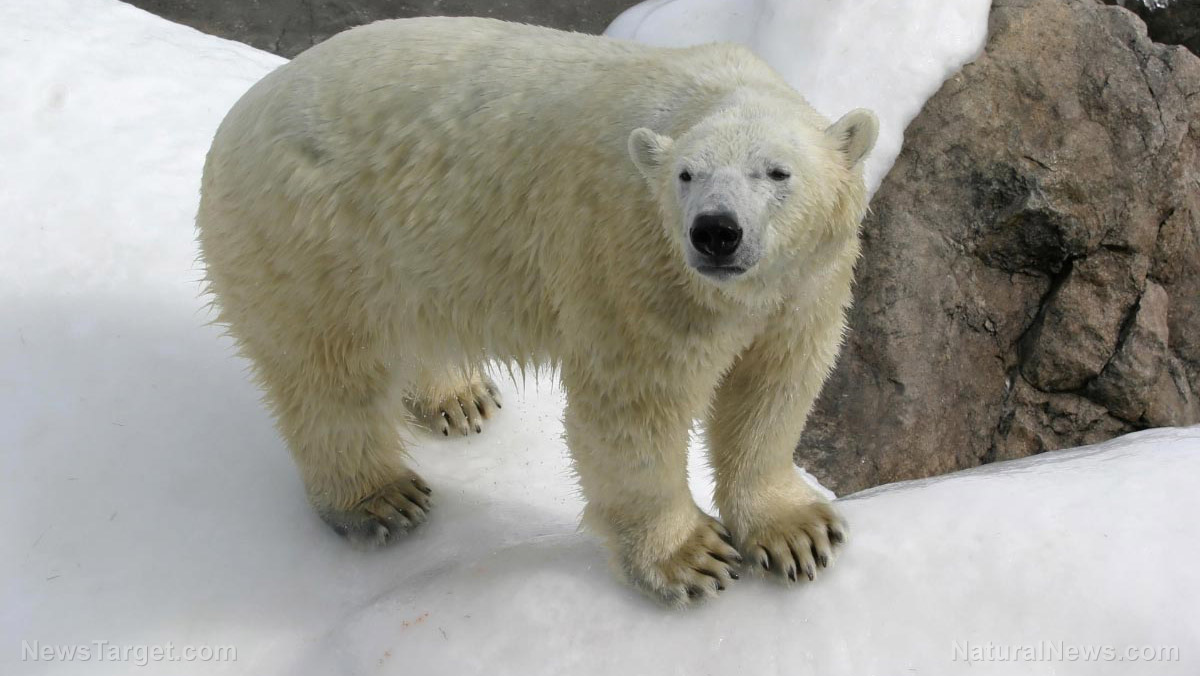
Global warming theory first became popularized when science publishers began to circulate pictures of polar bears dying in arctic waters, surrounded by melting icebergs. This visual of dying polar bears was etched in the public consciousness for years, driving climate activism, scientific funding, and political agendas. This wouldn’t be the first time that human empathy for animals would be used to manipulate public opinion and achieve political goals.
Today, climate change cultists operate out of sheer emotion and advocate for large-scale, consequential interventions that only benefit multinational interests. Instead of objectively addressing and fixing environmental issues that their own communities face, climate change cultists jump on the latest doomsday bandwagon, while never taking any practical solutions to address basic pollution problems in their own community.
The great big polar bear die off is not happening, even during the summer months
Many people are beginning to notice that the global warming scare campaign NO longer uses polar bears as props. It turns out that this issue was never a serious ecological problem to begin with. Polar bear populations continue to thrive many years after all the emotion-rousing propaganda was published. A Grist article recently asked why the climate movement doesn’t talk about polar bears anymore. The article points out that dying polar bear have “largely fallen out of fashion” through “overexposure” resulting in polar bear images invoking “cynicism and fatigue.”
For years, climate activists portrayed polar bears as symbolic victims of global warming, emphasizing their dwindling numbers due to melting ice caps. In 1999, biologist Ian Stirling produced a film hyping a “climate warming” with fears of Hudson Bay polar bears dying off in droves. His paper was used to support a Time Magazine cover in 2000, warning of an “Arctic Meltdown” with pictures of polar bears on the verge of collapse in the arctic seas. In 2007, Andrew Derocher and his colleagues predicted that polar bear populations would collapse in the coming years. However, recent scientific studies have challenged some of these fear-mongering narratives and highlighted a more complex reality.
While certain animal populations face challenges due to habitat loss, others have shown signs of resilience and adaptation. This discrepancy between activism's portrayal and scientific findings raises questions about the accuracy and effectiveness of messaging around polar bears and climate change propaganda. Newspapers and scientific publications have an ethical responsibility to present ecological and environmental issues without appealing to emotions and forces of political propaganda.
While scientists widely acknowledge that shrinking Arctic ice poses a significant threat to these iconic creatures, the reality is that they are not dying off in record numbers and are even thriving during the summer, when the ice caps are at their lowest level. In 2017 and 2018, National Geographic over-hyped the lie that polar bears were starving and dying off in record numbers. It turns out that polar bear population in the Chuckchi Sea have thrived in the summer months when ice levels are at significant lows. It turns out that polar bears don’t even need ice to survive year-round.
In certain areas of the world, sea ice has retreated. Between 1979 and 2013, the ice-free summer season increased by 20 weeks in the Barents Sea. Other areas in the arctic retain their ice sheet each year. Regardless, the changes in ice quantity in these areas has not affected the overall population of polar bears. It turns out that these animals are resilient. The real issue here is that humans have a tendency to virtue signal on issues they know very little about. When those issues are used to emotionally manipulate populations, they can be used to generate more funding for scientific hypotheses that drive political agendas.
Sources include:
Please contact us for more information.




















